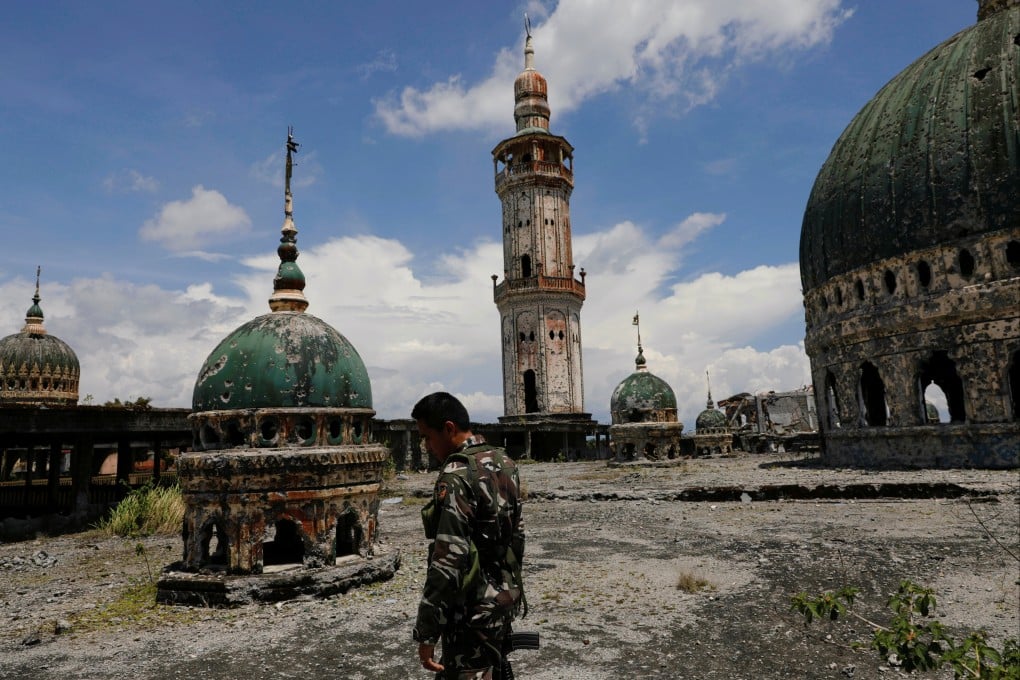Philippine election: what challenges will Bongbong Marcos or Leni Robredo face in the militant hotbed of Mindanao?
- Whoever wins the May 9 presidential election will have to deal with the security and political complexities in Mindanao, analysts say, including seeing through a peace process
- Frontrunner Marcos Jnr doesn’t have a clear policy for the region but has the clout to enact policies, while closest rival Leni Robredo has expressed support for regional autonomy

In 2017, pro-Islamic State militants sprang a five-month siege on the southern Philippine city of Marawi in the terror organisation’s most serious assault in Southeast Asia, unsettling governments across the region.
The onslaught at Mindanao island, led by the local Maute Group, was believed to involve fighters from Malaysia, Indonesia and the Middle East, and killed more than 1,200 people.
Today, Mindanao remains a hotbed for militant activities, as well as a long-running insurgency by the New People’s Army (NPA), the military wing of the outlawed Communist Party of Philippines.
The myriad groups pose serious security challenges for the Philippines, where Ferdinand “Bongbong” Marcos Jnr and Vice-President Leni Robredo are seeking the presidency on May 9. Whoever wins the election will have to deal with the security and political complexities in Mindanao, analysts say.
Zachary Abuza, of National War College in Washington, said the most serious security threats in Mindanao were the various factions that pledged allegiance to Isis, including the Abu Sayyaf Group, the Bangsamoro Islamic Freedom Fighters and the Maute Group.
Collectively, these groups are referred to as Daulah Islamiyah.
